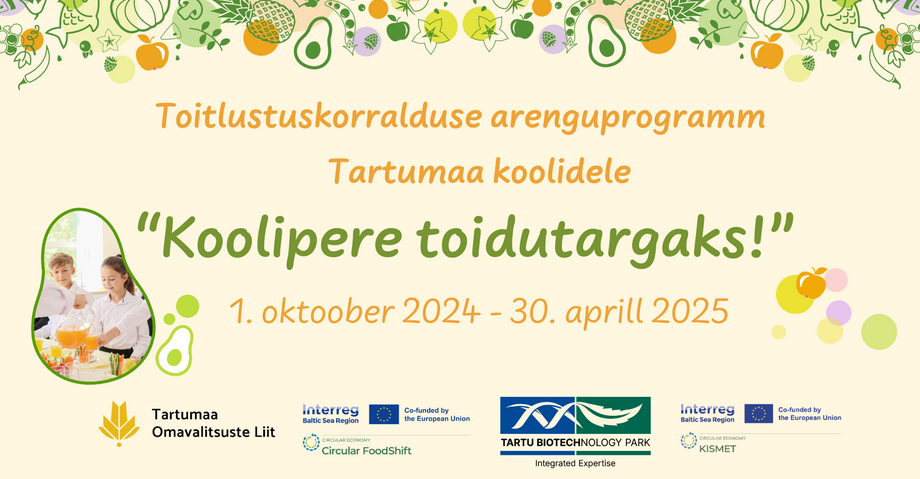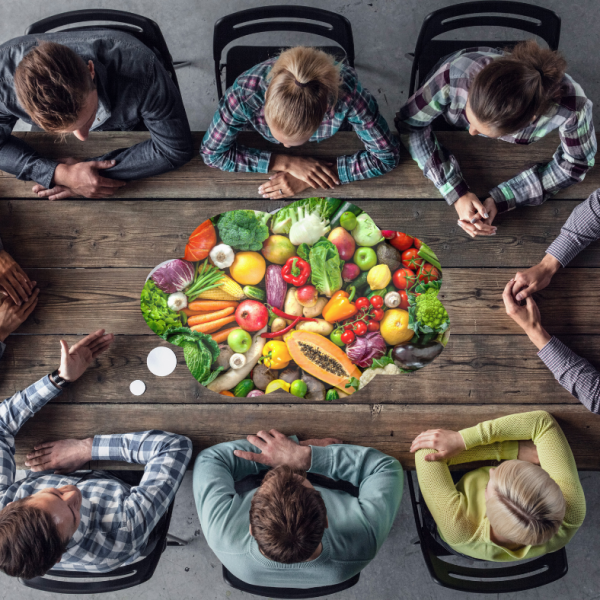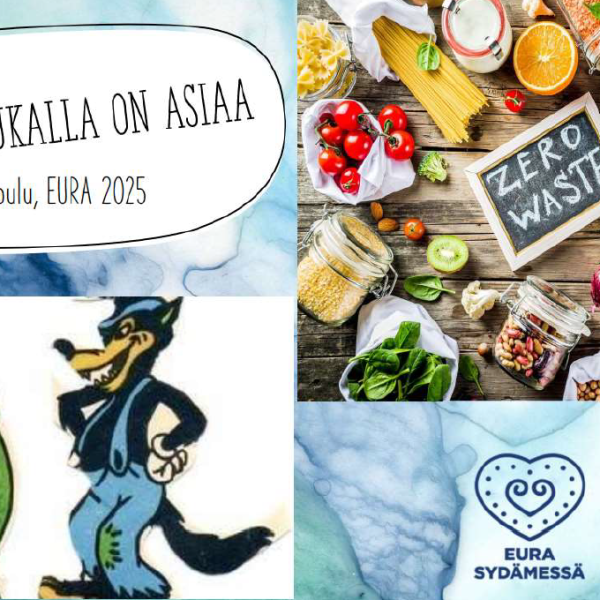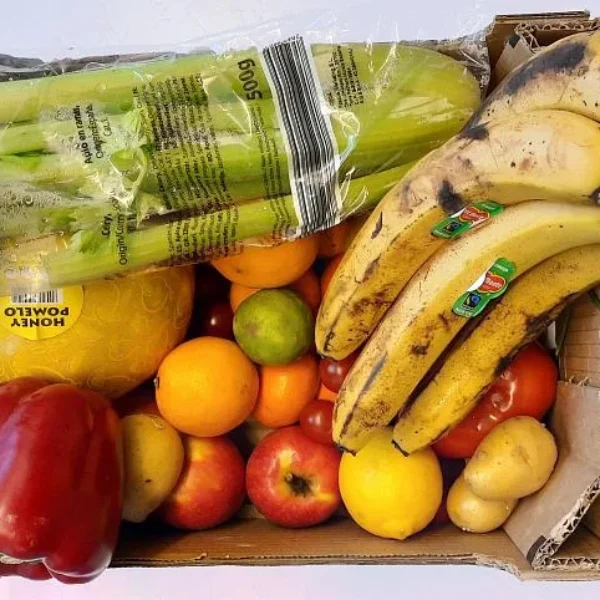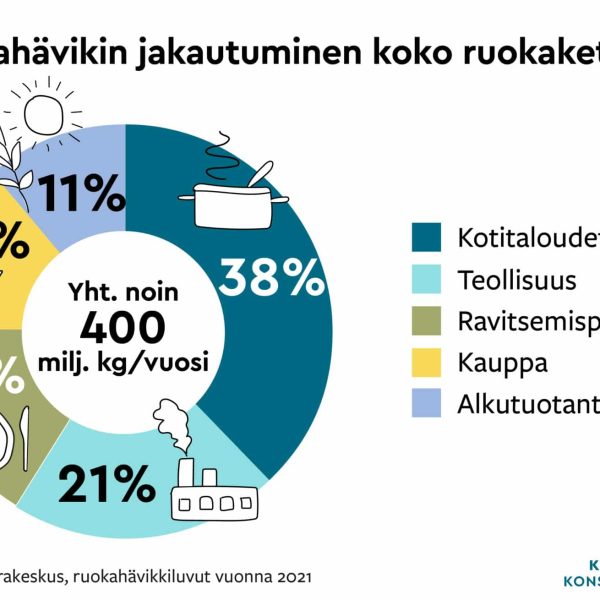The concept aims to address the issues of food waste reduction and prevention, raise awareness about food loss, and motivate consumers to make conscious choices. Public canteens, particularly those in schools, serve as an excellent platform for tackling the complex issue of food waste.
Schools play a crucial role in educating students about the environmental, social, and economic impacts of food waste, extending this awareness beyond the classroom. School management is key in supporting these initiatives, ensuring that policies and practices align with sustainability goals. By prioritising food waste reduction, schools can foster a culture of mindful consumption and responsibility.
Canteen personnel are instrumental in reducing food waste in public school canteens. They implement strategies, educate students, and optimise operations to minimise waste. Their role extends to engaging the community, adapting to challenges, and innovating solutions. By leading these efforts, they foster a culture of sustainability and efficiency, benefiting both the school and the environment.
How to do it
Suggested actions
The goal is to develop a catering arrangement development program and action plan for schools that includes various measures and activities aimed at improving children’s health and well-being, ensuring a varied and healthy diet, preventing food waste and raising awareness about it.
Pilot activities could include:
- Develop training programme and an action plan supporting the implementation of the training programme in the schools.
- Pilot this training programme in five schools involving different caterers.
- Analyse the current situation in piloting schools: evaluate the catering practices, menu, children’s dietary habits and awareness of the origin of food, the amount of food waste and food loss in the canteens and the ways of handling it.
- Integrate learning activities at the piloting schools with caterers and foster collaboration between those caterers and the schools.
- Assess the results of piloting the training programme in the schools: to what extent the activities carried out within the training programme had a real impact on reducing food waste in the school canteens.
- Summarise the whole process with the aim of using this report in future for carrying out the training program in other regions and cities.
Local adaptations
Tartu, Estonia
Developing and piloting a catering arrangement development programme in the schools of Tartu County
The City of Tartu has already adopted climate and energy plans and a food strategy that highlights the importance of lowering CO2 emissions, preventing food waste, and promoting sustainable consumption. The Food Strategy of Tartu County outlines also among the main goals to be achieved by 2030 that people in Tartu County are conscious consumers of healthy and local food; food waste and carbon footprint in the sector have decreased.
The food offered in educational institutions plays a central role in implementing the Tartu County food strategy, with the broader goal of promoting healthy eating habits and ensuring food sustainability and safety. Through school meals, it is possible to influence the eating habits of a large number of people and ensure that children receive nutritious and balanced food, which is important for their health and well-being.
The goal is to develop and pilot a catering arrangement development program „Making the School Community Food-wise” for schools in Tartu County. The program is intended for schools that have been discussing offering inclusive food education, changing the organisation of lunch breaks, reducing food waste in school canteens and more consciously integrating food-related topics into the curriculum, but have not yet planned any changes. This is an opportunity to start implementing changes through the development program in collaboration with experienced mentors. The pilot program will be carried out in five schools in Tartu County starting in October 2024 and ending in April 2025.
To complete the program, the school needs to form a broad-based team which will go through a detailed self-assessment questionnaire to understand the school’s current situation, and students‘ plate waste in the cafeteria will be measured. This helps the school understand how systematically they are approaching food education and catering management. Based on the self-assessment results, the experts and the school team will meet to discuss the findings and create an action plan with measurable goals for the next five months. Each school team will lead the implementation of the action plan, with ongoing support from mentors.
At the end of the implementation period, the school team and experts will assess progress and measure changes, including results achieved in reducing the food waste. All schools participating in the program will also repeat the self-assessment to see what has changed internally. At the end of the pilot program, the experts will create a school-specific report and a general report about the results of the pilot. The school report will cover all activities during the pilot, from the self-assessment to the action plan, and an analysis of successes and challenges. It will also include the school’s feedback on the methodology and suggestions for improvement. Additionally, the report will outline a follow-up plan for the school to continue after the program.
Satakunta, Finland
Eura’s Food Waste Reduction effort: Achievements and Future Perspectives
The municipality of Eura in Satakunta has made significant progress in sustainable food management by focusing on reducing food waste. Starting in 2022, a food waste reduction pilot at Kiukainen primary school showed notable success, sparking broader interest.
The food waste reduction effort at Kiukainen primary school achieved a 73% decrease in plate waste, resulting in savings, reduced carbon dioxide emissions, and less food waste. Simple measures, such as encouraging students to take only what they can eat and monitoring the progress, were highly effective without burdening staff. The success was driven by attitude, commitment, and collaboration among stakeholders.
Eura positively impacted the school community, strengthening cooperation among food services, teachers, and students, and increasing awareness about the environmental impact of food waste. Looking ahead, there is a plan to utilise Eura’s model more broadly and involve more schools and food service locations in Satakunta. The aim is to increase usage of proven sustainable food management practices in Finland and the Baltic Sea region.
Improved communication between schools and the central kitchen during the project reduced unnecessary food ordering and improved menu planning. Eura’s food waste reduction project serves as an example for the KISMET project, enhancing collaboration and opening opportunities for new financing, resource sharing, and exchanging best practices in the region.
KISMET Actions & Tools
A call for action to schools (Tartu)
A call for action to the schools interested in participating in the pilot program. For more information, click the link below.
School catering training program (Tartu)
The results of the school training program, which integrates learning activities at the piloting schools with caterers, school cooks etc., are being summarized to support its potential application in other regions. The report on the outcomes of the pilot program, conducted in five schools in Tartu County, is scheduled for publication in April 2025. A video providing an overview of the program as implemented in these five schools will also be produced and published.
Eura food waste case (Satakunta)
Eura Food Waste Case: A project focused on reducing food waste in schools while fostering environmental awareness among children.
Building on the Municipality of Eura’s success in reducing food waste in schools, the KISMET project aims to expand this model to other schools and food services across Satakunta and the Baltic Sea region. Strengthened collaboration between kitchen staff and schools has improved food management and communication, helping to minimize unnecessary food orders and enhance menu planning. In this video, Food Service Manager Arja Jussila, Food Service Supervisor Outi Tuomikanta, Environmental Engineering Engineer Satu Palokangas, and Municipal Manager Kari Kankaanranta from the Municipality of Eura share their insights on reducing food waste in schools.
Related knowledge
StratKit+ > Strategies for Change
Empiric support for sustainability activities for public meal providers in Denmark, Estonia, Finland, Germany, Poland, and Russia. It includes tools that provide guidance on how to effectively address the complexity of the environmental, economic, and social impacts of sustainability. “Strategies for change” is the gateway that connects the public meal with the food system and its drive towards increased sustainability.
EIT Food > From Waste to Value
The course “From Waste to Value: How to Tackle Food Waste?” discover the causes and impact of food waste, and learn how you can tackle it on a personal, community, and national level. This course will cover the latest trends and best practices in reducing food waste, from farm to fork.
Wasteless
The WASTELESS project will develop and test a mix of innovative tools and methodologies for Food Loss and Waste (FLW) measurement and monitoring, will recommend a harmonised methodological Framework for FLW quantification, and will develop a decision support systemic Toolbox targeting all food value chain stakeholders. Elearning materials on reducing food waste will be prepared for the schools in 2025, including a teacher resource pack based on graphics (friendly for many languages) which can be tested in pilot schools of project partners in different countries, including Estonia.
Breaking Barriers: Empowering Effective Food Waste Solutions in the Nordic Countries
Food waste is not decreasing fast enough in the Nordic countries for the nations to achieve the global goal of halving food waste by 2030. A recent report provides recommendations to accelerate the reduction of food waste, proposing stronger measures and enhanced Nordic cooperation.The report is part of the Nordic Council of Ministers‘ initiative on Healthy and Sustainable Food Systems. It is one of several actions included in the commitment “Towards a Greener Nordic Region through Reducing Food Waste” (2023), approved by the Nordic ministers responsible for food policy.
Consume Food Wisely (Tarbi toitu targalt)
Guidelines for educational institutions for preventing and reducing food waste and food loss in schools.
Guide for assessing the climate impact of preschool and school kitchens
The aim of the project „CLIKIS-Network – Climate-Friendly School Kitchens“ was to show how it is possible to reduce the environmental impact in preschool and school kitchens, while providing healthy, child-friendly, high-quality, and affordable food. The project offered eight Estonian preschools and schools the opportunity to analyse their kitchen equipment, menu, cooking practices, and waste management, introducing more environmentally friendly alternatives where there is potential for development. The analysis utilises a method evaluating 19 aspects developed in Germany, introduced by experts from project partner IZT (Institute for Future Studies and Technology Assessment).
Workshops hosted by the Estonian Medical Students’ Association
The workshops on (environmental) conscious eating organised by the Estonian Medical Students‘ Society introduce healthy food choices and also cover topics such as the environmental impact of food and food waste for students in grades 7-9.
Educational program for schools: Planet Sustainability – Sustainable Food Production and Consumption
The Peipsi Cooperation Center will implement a project in 2023-2024 that develops and tests new educational programs and digital teaching materials (workshops „fair breakfast“ in schools (e.g. in Peipsiääre municipality, Tartu schools, public events). The learning materials to be prepared focus on the environmental impact of the food production process and food waste.
Nordic council of ministers, Report
Breaking Barriers: Empowering Effective Food Waste Solutions in the Nordic Countries
Food waste is not decreasing fast enough in the Nordic countries for the nations to achieve the global goal of halving food waste by 2030. A recent report provides recommendations to accelerate the reduction of food waste, proposing stronger measures and enhanced Nordic cooperation.The report is part of the Nordic Council of Ministers‘ initiative on Healthy and Sustainable Food Systems. It is one of several actions included in the commitment “Towards a Greener Nordic Region through Reducing Food Waste” (2023), approved by the Nordic ministers responsible for food policy.
Food Waste Guide
Food waste is a global and multifaceted issue. International goals have been set to address it. The United Nations’ Sustainable Development Goal aims to halve global food waste at the retail and consumer levels by 2030 and to reduce food waste across all parts of the food chain. Achieving this goal requires extensive efforts from various actors within food systems, including primary production, industry, trade, food services, governments, and consumers. Our food waste guide provides information on food waste and concrete tips for consumers to combat it.
SAA SYÖDÄ – You can eat
In the food industry, retail stores, and restaurants alike, active efforts are being made to find ways to reduce food waste. Preventing the generation of waste is the primary method for all actors in the food supply chain, while donating or selling surplus food is considered a secondary measure for managing food waste. The food industry, packaging sector, and retail sector have committed to a material efficiency pledge aimed at systematically reducing food waste. Additionally, they are obligated to report the amount of food waste annually for European monitoring purposes.
The Natural Resources Institute Finland (Luke)
Food waste is unnecessary waste that could have been avoided, for example, through better planning or by preparing or storing food differently. Food waste occurs at all stages of the food chain, but the largest amounts are generated in households. The Natural Resources Institute Finland (Luke) studies the quantities of food waste and food loss and provides solutions for the entire food chain to reduce waste and loss.

